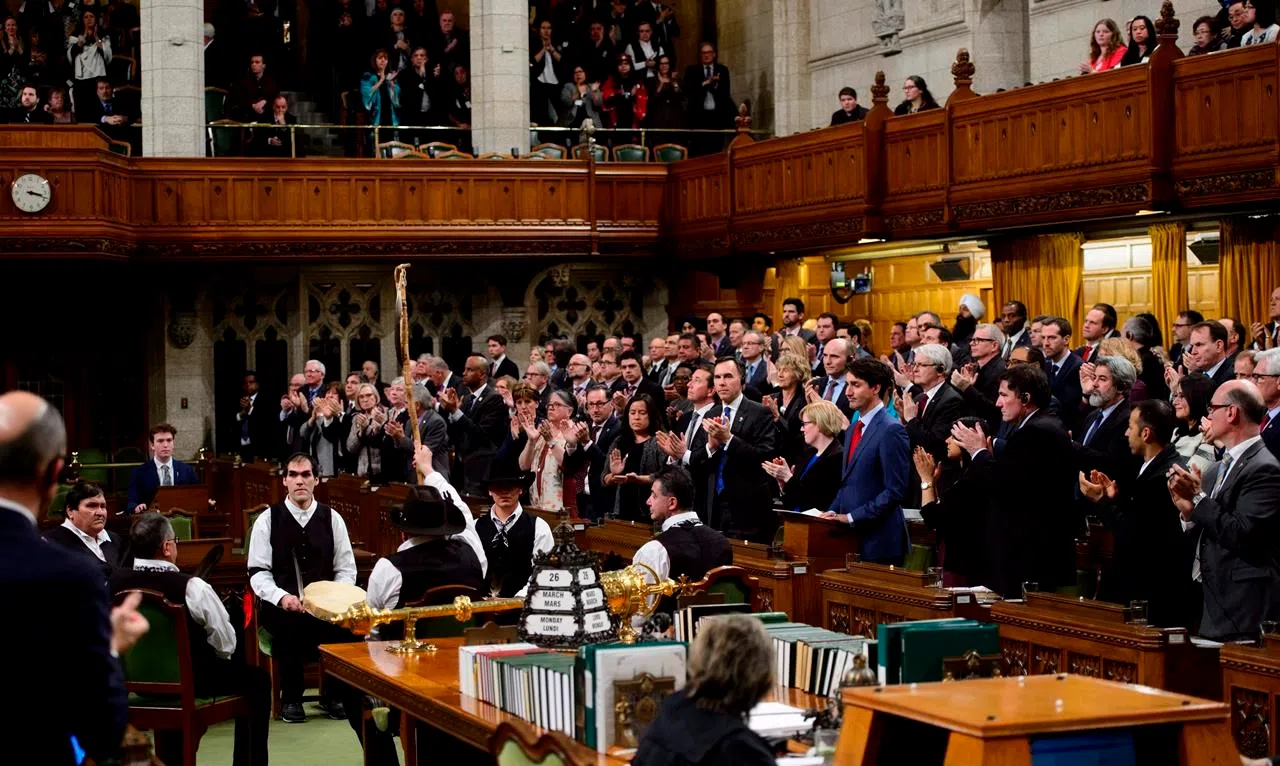
Trudeau apologizes to Tsilhqot’in for hanging of chiefs in 1864 ‘Chilcotin War’
OTTAWA — For generations of Tsilhqot’in youth, the first story they learn is of the historic betrayal by the British colonial government that led to the hanging of six of the nation’s leaders, says Chief Joe Alphonse.
Now, more than 150 years after the so-called Chilcotin War, that historic wrong has at last been made right, Alphonse said Monday after the federal government apologized in a “statement of exoneration” for the Tsilhqot’in war chiefs who were wrongfully convicted and killed for defending their homeland, their people and their way of life.
“Reconciliation starts here. Ground zero. Tsilhqot’in. This is where it starts,” Alphonse said, describing the apology as “a giant step.”
“Canada has a chance and opportunity to be a role model to all countries with Indigenous people. That’s what this is about, a new way of doing things, a better way of doings things, that includes all of us.”


